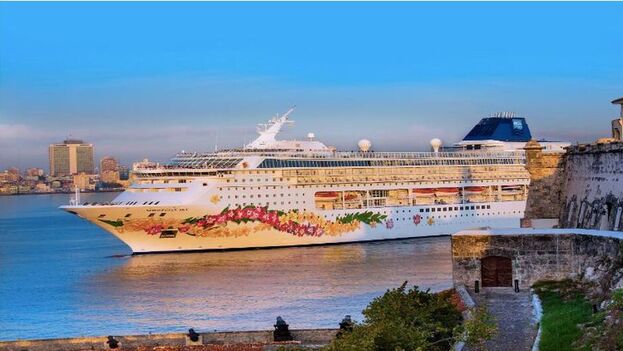
![]() 14ymedio, Havana, 18 February 2023 — On Friday, Joe Biden’s government extended for another year, until 2024, the ban on ships with American flags docking in the ports of Cuba. Almost three decades have passed since this measure went into effect, and Washington still considers that Havana has not demonstrated that it will refrain from the use of excessive force against its boats or aircraft.
14ymedio, Havana, 18 February 2023 — On Friday, Joe Biden’s government extended for another year, until 2024, the ban on ships with American flags docking in the ports of Cuba. Almost three decades have passed since this measure went into effect, and Washington still considers that Havana has not demonstrated that it will refrain from the use of excessive force against its boats or aircraft.
In a note sent to Congress, Biden says that the entry of any unauthorized vessel into Cuban territorial waters “remains harmful” to US foreign policy, a fact that could facilitate irregular migration from the Island.
“Massive migration from Cuba would endanger national security by posing a disturbance or threat of disruption of U.S. international relations,” President Biden says in the note.
The United States declared a national emergency on March 1, 1996 after, on February 24 of that year, the Government of Cuba ordered a military maneuver against three civilian planes of the Brothers to the Rescue group, dedicated to spotting rafters fleeing the Island.
The Cuban Air Force used MiG fighters, who managed to shoot down two Cessna Skymaster planes from the exile organization and kill the planes’ four of the crew members. This event triggered President Bill Clinton to issue the ban, which his successors have kept in force.
At that time, Havana alleged that small planes had violated Cuban airspace, while the United States maintained that they were in international airspace, north of the island.
In the note, the US government says that the proclamation came into force 27 years ago due to the threat of disturbance caused by the “destruction” by the Cuban Government of those two unarmed civilian planes.
The state of emergency was reactivated on February 26, 2004, when the United States implemented sanctions to deny monetary and material support to the regime. The measure was softened, although not revoked, during the Barack Obama administration.
With the arrival of Donald Trump there was a new chapter in the tightening of economic measures, including sanctions for airlines and cruise ships that maintained operations in Cuban terminals.
At the end of December 2022, federal judge Beth Bloom sentenced the cruise companies Carnival, Royal Caribbean, Norwegian Cruise Line and MSC Cruises to pay more than $400 million for docking at the Havana terminal. The judge considered that companies violated Title III of the Helms-Burton Act, issued in 1996 and activated by Donald Trump in 2019. The companies have appealed that sentence.
Translated by Regina Anavy
____________
COLLABORATE WITH OUR WORK: The 14ymedio team is committed to practicing serious journalism that reflects Cuba’s reality in all its depth. Thank you for joining us on this long journey. We invite you to continue supporting us by becoming a member of 14ymedio now. Together we can continue transforming journalism in Cuba.
